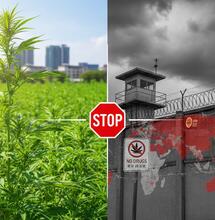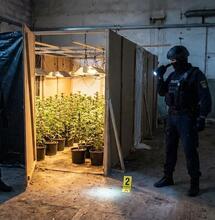Who is California's Top Cannabis Attorney?

Last year, the Los Angeles Daily Journal hosted an inaugural award in an effort to recognize the best California attorneys who represent cannabis legal parties before regulatory bodies in state or federal trials and appellate proceedings. The honors went to Amy Steinfeld, managing partner of the law firm Brownstein Hyatt Farber Schreck Santa Barbara office and co-chair of Brownstein's Cannabis and Industrial Hemp industry.
Cannabis attorneys specialize in all things legal for starting and running a cannabis business. A cannabis lawyer can focus on marijuana, hemp, CBD, or any other legal aspect associated with Cannabis.
While some cannabis lawyers specialize in one specific field of the cannabis industry in only one state, others have in-depth knowledge of various legal proceedings across more regions. The need for lawyers to help clients in the cannabis sector has eventually also led to multiple publications to start recognize those most successful in the field.
One example is the Cannabis Law Report and the Cannabis Law Journal, which issue an annual list of Global Top 200 Cannabis Lawyers. They recently released their 3rd list of the global top 200'rs. Their list does not rank the attorneys but rather features them based on client recommendations and editorial decisions.
The majority of the global top 200rs are legal cannabis professionals based in North America, with cities such as Los Angeles, San Francisco, Denver, and, as of more recently also New York, being the premier centers of excellence. Close behind are Washington, Seattle, Boston, Miami, Chicago, and Las Vegas, among others.
Other publications, such as the Los Angeles Daily Journal, decided to single out the best cannabis attorneys. In 2022, this publication went on to make its first-ever pick. Amy Steinfeld, a land use and water lawyer with legal expertise on environmental matters, was chosen as the year's Top Cannabis Lawyer.
Steinfeld has worked on cannabis-related issues in California since the passage of Proposition 64, the initiative that legalized the recreational use of marijuana in the Golden State. Amy has helped guide clients with license and permit processes through her work, with most of her clients being cannabis and hemp cultivators who grow outdoors.
Her first cannabis-related case illustrates the sheer complexity and variety of problems a cannabis cultivator can face, especially in states such as California, where there are many laws on land use, zoning, environment and water protection.
So, in Amy's first case, a NIMBY group called the Santa Barbara Coalition for Responsible Cannabis Inc. did not want grower Sara Rotman to cultivate cannabis as there were vineyards close to her land. "It was a front for 'We don't like cannabis,'" Steinfeld told the Los Angeles Daily Journal.
Amy defended her client in five administrative appeals at the planning commission and board of supervisors and in trial court litigation. The dispute was California's first cannabis cultivation case to reach trial and the first in the state where the plaintiff invoked the California Environmental Quality Act. Steinfeld believed that it was a matter of first impression.
The winemakers' main argument in the case was that the odor from cannabis would contaminate nearby vine grapes; that the aerial migration of the plant's terpenes would contaminate the wine.
"They found a case from Australia in which nearby eucalyptus trees allegedly altered the taste of wine from a vineyard, so we came back with science of our own," Steinfeld told the publication. "Sara Rotman is a total rockstar who was on board with getting the best experts to make our case."
The arguments produced by the defense turned out to be superior to the claims made by the plaintiffs. In the end, the judge in the case ruled that the accusation was based on speculation, therefore it did not represent "substantial evidence."
Pushing back the winegrowers was a huge victory. "It quieted down the coalition and took the wind out of their sails," Amy said. "They appealed, then decided not to pursue the appeal. Now they are working with our growers, not against them."
In sum, cannabis attorneys help individuals and business entities navigate the complex reality of setting up a cannabis business. With the spread of legalization, there's an increasing need for legal professionals who operate in the domain of cannabis. Cases can involve procedures of launching a business, managing transactional and compliance requirements, extensive licensing processes, and other unpredictable challenges such as your neighbors believing that cannabis can cause harm on their vineyards.
Is it a paying profession? As of April 2023, the average annual pay for a Cannabis attorney in the United States is $77,000 or that would be $37 an hour. $100,000 is the 75th percentile, while top players earn over $160,000 per year. Well, that seems to be fair paying for now. I can only assume that the salaries will go upward as legalization continues to take stronger and stronger hold.












